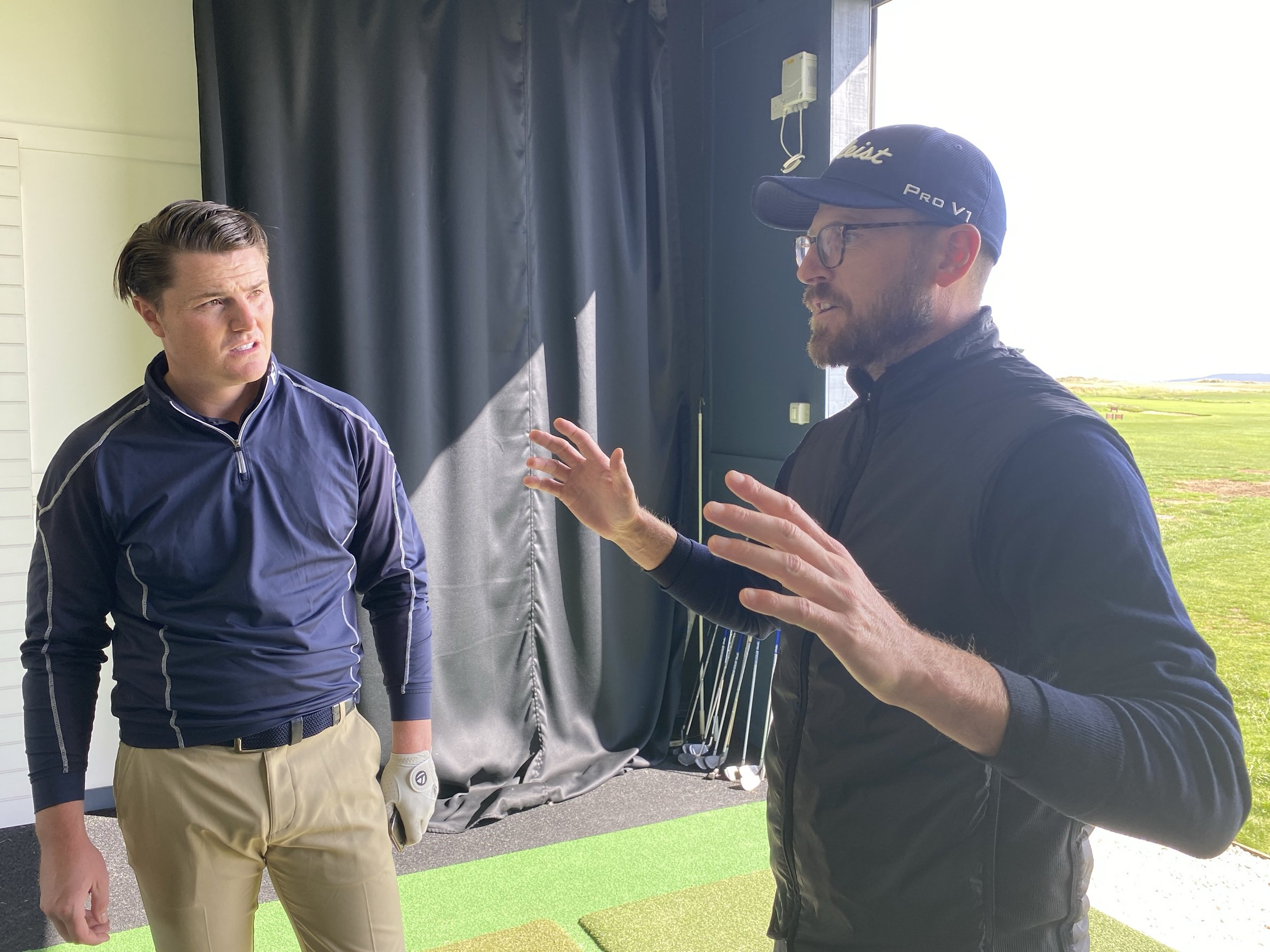FEATURE
“I wish I had become a PGA Professional 10 years ago”
After a decade on tour, former Walker Cup star Michael Skelton decided the time was right to start training to become a PGA professional – with the aim of pursuing his lifelong love of coaching

It’s never too late. It’s a frequent theme of songs and films. But Michael Skelton has learned it’s also never been truer.
The 40-year-old was a youth prodigy, a winner of the European Boys’ Championship and part of a successful Walker Cup team in 2003.
He’d enjoyed 10 years on tour trying to scale the summit of the professional game. But alongside the bright lights and endless travelling, he’d also put down the clubs and forged new paths – spending time in fashion and e-commerce before setting up a wine business.
It was during the latter, spending 12 hours sitting on a laptop each day at home, that the Teessider realised how much he missed the game.
But with two young children, going back to the week-to-week grind that being a touring professional entails was out of the question.
“They are two and four and I owed it to them to be home and have something a bit steadier,” he said. “Being on tour and trying to be a tour professional, there is no family life – unless you’re absolutely flying and taking them with you.”
So Skelton decided to train as a PGA professional, enrolling in the three year training programme at the University of Birmingham, and taking a role as assistant professional at Seaton Carew GC, in County Durham.
“It’s a no brainer,” he said. “I wish I had done it 10 years ago. I wish that when I came back to the game, when I was 30, that I’d done it then.
2003
When Skelton played in Walker Cup at Ganton
4
The age of Skelton’s youngest pupil…
84
…and the age of his oldest student
10
The years Skelton spent as a tour player
“It’s something I could have done a couple of times in my life. I was on the elite squad for England, played in the Walker Cup at 19, and obviously had quite a few college opportunities then.
“I said to myself at the time, ‘I’m a year older now. Maybe that time has passed. Maybe I’m too old to go out there’. I’d have been 20 and all the guys in the first year would have been 18 or 19. I convinced myself I was too old.
“When I was first coming back to golf when I was 30, I said the same thing about The PGA – ‘I’m too old to do it’.
“This time my partner and I had a conversation. I said, ‘internally, I still feel young, so I’m not going to talk myself out of it this time’.
“What’s three years? I’ll be 42 by the time I’m qualified. It’s not very old. Ask a 50-year-old if it’s old!
“I didn’t want to put myself in that position again of being mid-40s, saying I should have done The PGA training and can’t do it now.
“My partner helped me see things in a different way. I could have tried to go back on tour. But I would have had to get myself playing somewhere again, get myself practising a few hours a day, work a part-time job and get back into it.”
Now into his second year of the scheme, Skelton is relishing his role at Seaton Carew and the new coaching skills he is accumulating every year. He’s also developing extensive equipment and custom fitting knowledge alongside the financial and administrative expertise he already had from running businesses.
“I’ve learned a lot from The PGA,” he said. “I’m a feel player and The PGA have broadened my knowledge of some fundamental things. They have this pyramid of learning.
“You’ve got all your fundamentals and, off the back of that, you branch out into something else and then branch out into something else again.
“I’ve learned about the structure of giving lessons. The more I learned I realised, giving my first few lessons, that not everybody wants to be a professional.
“There’s an 80-year-span between my youngest and oldest students and some of the kids that are five and six love the game as much as me – as do some of the guys that are 84”
“I’ve reminded myself these guys are playing for the enjoyment of the game. They want to be able to get off the 1st tee. They want to go through a round of golf and not lose five or 10 balls.
“I always had this critical eye, ‘how much time are you going to dedicate to it? How much are you aware of what you’re doing? What are you doing away from the golf course? What are you going to be doing in between these lessons?’
“That’s not the way club golfers think. I had to turn around to spending an hour with someone and benefiting their game.”
Skelton said the support from Seaton Carew head professional Martyn Stubbings had “given me a bit of life back” and he added the varied nature of his work and clients – his youngest being just four years old and his oldest 84 – gave him enormous enthusiasm.
He said: “Everybody that comes through the door has a different agenda. It’s the diversity of not knowing what you’re going to face. I like that. It gives me creativity. Not everyone I get to see is off 28 and not everyone I see is off scratch.
“There’s an 80-year-span between my youngest and oldest students and some of the kids that are five and six love the game as much as me – as do some of the guys that are 84!
“We’re all sharing our experiences and there is that enthusiasm for the game from anybody that comes to get lessons. They want to get better and so you’re already onto a winner.”

Get golf business insights straight to your inbox
Sign up for the first look at the latest news, features, exclusive interviews and podcast episodes with our monthly newsletter





